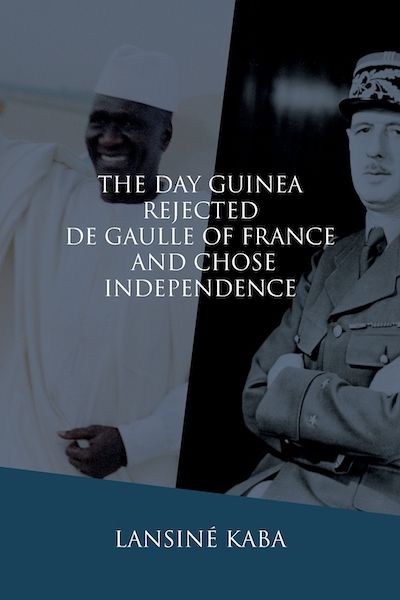

Diasporic Africa Press, Inc.
Diasporic Africa Press (DAP) is an independent, nonprofit publisher of serious non-fiction books about the African world. Founded in 2010, DAP continues to provide adult and young readers with books in African world cultures, histories, and literature found nowhere else.
Shop Now! See Our Latest Books!
The Day Guinea Rejected De Gaulle of France and Chose Independence
The Guinea of Sékou Touré entered modern history as an independent African nation on September 28, 1958 with a resounding "No" to the French community proposed by General Charles de Gaulle. This was one of the signature moments in the history of French decolonization in Africa and of the African independence movement writ large. The myth of Sékou Touré-meaning the transformation of his image into that of the bard and symbol of African dignity, and even of a great leader of the Third World-was born at that precise moment. Buy why did Guinea reject General de Gaulle's 1958 project of a French-African community and chose independence instead? Sékou Touré thought only free peoples were capable of assuming their destiny and had articulated a bold plan for an independent Guinea: liberate political detainees; abolish traditional chieftaincy; recruit through competitive examination of new administrative agents; increase salaries and family allowances; reduce personal tax; defend women's rights and reduce the price of dowries; encourage female education; eliminate the monopoly on rice held by the large companies; create stabilization fund for crops such as bananas, coffee, and cocoa; and deregulate the diamond-mining industry. Though the Guinean leader was experienced in politics, perhaps he misjudged the internal situation of France, its obligations in the face of international appetites in the delicate period of decolonization, and the capacities of independent Guinea. Professor Lansiné Kaba, a Guinean historian, recounts in this work not only the events which led to the negative vote and that which followed it, but also, with hindsight, a real retrospective in light of burning questions about leadership, the use of power, the duty of remembrance and unity, the democratic choice and the future of Guinea facing the challenges of the 21st century.
About Us

Kwasi Konadu
Editor-in-Chief and Director
Diasporic Africa Press (DAP) is a nonprofit and global publisher of serious books about the African world, specializing in histories, cultures, literature and language. Targeting adults and young readers, our books are grounded in scholarship, written for accessibility, and designed to support discussion, teaching, and research.
On this virtual storefront, books are divided into four categories: African World Cultures, African World Histories, African World Literature, and Young Readers Series. Rights and permissions are handled by Copyright Clearance Center. For desk copies, faculty can email us (support@dafricapress.com) with the relevant details. For all other matters, email us, but know that all sales are final except transactional errors, no refunds are stated or implied, and we do not accept returned books, unless damaged in transit.
Prospective authors can email us their proposal, granted it is organized around and addresses the following questions in plain language:
The Overview: So what? Who cares? And who are you? Target Audience: Whose problems are you solving? Who will benefit most from your book? Who do your readers trust today? Competing Titles: How does your book compare to other offerings (and authors) on the market? Marketing Plan: How will you spread the word about your book before and after publication—without the publisher’s help? About the Author: Why are you the best person to write this book? What is your authority or credibility in the market? Sample Chapters: Have you demonstrated that you can deliver on the promise the proposal makes? Is your writing accessible to the intended readership? Please include a sample chapter representing your best writing; all proposals and projects are peer-reviewed.
We look forward to your readership and hope you consider supporting a translation, a project, a series, or the operating costs of the press. All profits are reinvested into new projects. Your generous, tax-deductible contributions help make the work of the press possible.
